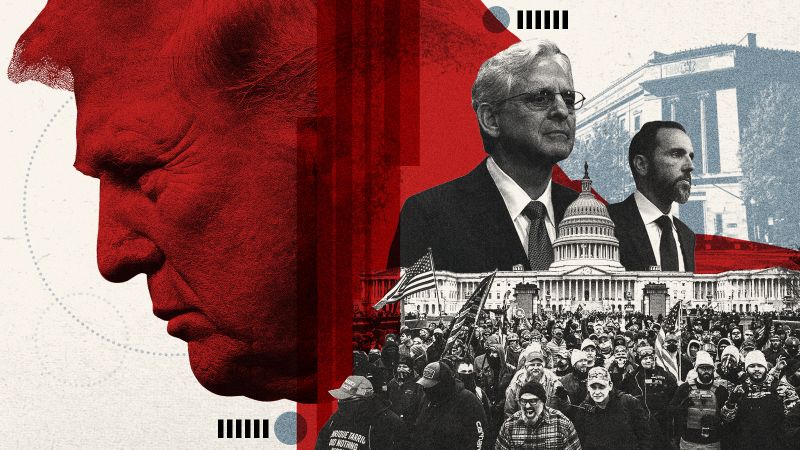Several months after the 2021 attack on the US Capitol, the FBI began investigating a tip that former President Donald Trump may have met with members of the Proud Boys, a far-right group involved in the violence. The investigation was part of a larger inquiry into Trump’s role in the attack.
For months, the FBI and a team of prosecutors looked for links between Trump’s inner circle and the Proud Boys. They focused on a period in late 2020, when an informant alleged an interaction between Trump or his inner circle and the Proud Boys occurred. Prosecutors also examined financial records and the so-called “war room” at the Willard hotel, where Steve Bannon and other Trump supporters strategized about thwarting the certification of Joe Biden’s electoral victory.
However, no direct criminal links to Trump emerged, and the suspected Proud Boys meeting, the Willard hotel room, and the rally fundraising were all dead ends.
The investigation faced long odds and a political clock as Trump went from being a pariah to likely Republican nominee and eventually, president. The Justice Department has taken stock of the failed effort to prosecute Trump for obstructing the peaceful transfer of power four years ago.
As special counsel Jack Smith prepares to release a final report on the investigation, critics of Attorney General Merrick Garland, including some inside the Justice Department, have tended to focus on decisions made during 2021, describing it as a lost year.
Two camps emerged among those familiar with the investigation: those who believe the early pursuit of leads wasted time, and those who say the DOJ had no choice but to exhaust all investigative avenues. Some officials believed that an unprecedented prosecution of a former president would take about five years, given constitutional questions about immunity and separation of powers. However, critics argue that with the political calendar, they didn’t have that luxury.
One former Justice Department official involved in the early stages of the investigation said, “The evidence just wasn’t there.” Top DOJ officials bristle at the notion that they sat on their hands, saying they followed the evidence as Garland repeatedly said they would.
The investigation played out behind the closed doors of a grand jury room into the summer of 2023, when the grand jury handed up a sweeping indictment charging Trump with four federal charges for conspiracy and obstructing an official proceeding.
However, the case was bogged down in a slow appeals process, which will likely continue beyond Trump’s presidency. The Supreme Court ultimately held that Trump enjoyed “absolute” immunity from prosecution for actions taken within his constitutional powers and a limited immunity for other official actions. The ruling was a devastating blow to the case, and the investigation has essentially been suspended.

